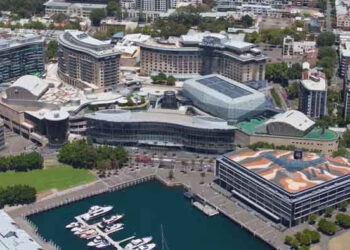In a move seen as signaling a fundamental transformation of the Las Vegas economy,
MGM Resorts International has announced it will start charging for parking in the city, the first major casino operator to do so. MGM Resorts has 35,310 hotel rooms and 37,000 parking spots around the city’s main drag, known as “the Strip”, which are in high demand during major events. The charges, which the operator says will be up to US$10 for overnight self-parking, will be introduced at most of its casinos and attached hotels, although some parking at one MGM hotel and casino, and two of its shopping centers will remain free. Customers in MGM’s loyalty program will also be able to earn free parking rewards.
Parking fees would not make headlines elsewhere. But in Las Vegas they are important for marking the city’s shift away from reliance on gambling and towards non-gaming income from attractions such as conventions and performances.
In 1990, for example, 61% of revenues came from gambling, which subsidized many other goods and services supplied to visitors; from $20 hotel rooms to free drinks on the casino floor. The cost of supplying them at a loss was more than offset by the benefits of making it easier for the visitors to gamble. These days, however, many tourists visit Las Vegas without gambling. Non-gaming revenues overtook money earned from gaming in 1999 and stand at 64% of the total today. That makes it harder to justify the subsidies.
70% of MGM’s revenue in Las Vegas now comes from nongaming attractions such as high-end shops, celebrity restaurants, shows and nightclubs. The reaction to the move to charge for parking has been vocal, with some customers responding to the new charges by vowing on social media to take their business elsewhere. Analysts, however, are predicting that other operators will eventually follow MGM, and introduce parking fees themselves.






























